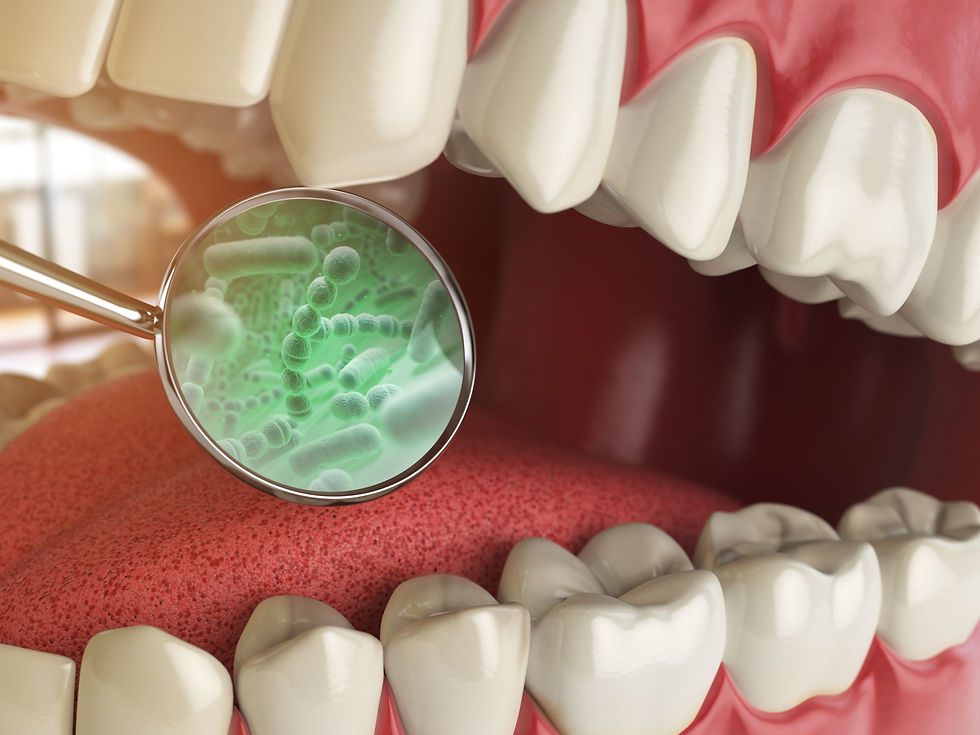Living With Diabetes? Tips To Keep Your Mouth Healthy, With Killeen, Texas General & Family Dentist
- Dr. SmiLee Dental of Killeen

- Nov 16, 2021
- 3 min read
Updated: Jul 12, 2024

November is National Diabetes Month, and we want to do our part in raising awareness of the effects of diabetes on oral health! An unfortunate truth about living with diabetes is that the disease increases the risk of developing a number of oral health issues, like gum disease, tooth decay (aka cavities), thrush, and more. But fortunately, it is also true that with a bit of extra TLC, you can take control of your oral health, and have a happy, healthy mouth!
Diabetes and Your Mouth
Why does diabetes increase the risk of so many oral health issues? It largely comes down to elevated blood sugar level: Higher blood sugar level means higher sugar level in saliva, which means an increased risk of tooth decay and gum disease.

The bacteria in plaque uses sugars and starch as food to produce acids, which attack teeth. And the longer this bacterial plaque remains on teeth, the more it will weaken tooth enamel and irritate the gums. Over time, the gums become swollen and irritated, and may bleed easily - a stage of periodontitis (gum disease) called gingivitis. Left untreated, gingivitis can develop into much more serious advanced gingivitis, during which the soft tissue and bone that support your teeth are gradually destroyed, and teeth begin to loosen and possibly fall out.
Gum disease tends to be more common and severe among people who have diabetes because diabetes lowers the body’s ability to resist infection and also slows healing. In addition, an infection (such as periodontitis) may actually cause blood sugar levels to rise, which in turn makes diabetes more difficult to control. Preventing and controlling gum disease with good, daily oral hygiene and regular dental cleanings can help improve blood sugar control.
People with diabetes may also be more likely to develop thrush, which is a fungal infection caused by the yeast candida albicans. Yeast feeds on sugar, and the elevated levels of sugar in saliva help candida grow. Practicing good oral hygiene can help you avoid thrush.
Dry mouth (xerostomia) is a common symptom for people with Type 1 and Type 2 diabetes. People with diabetes are prone to dehydration due to increased blood glucose levels. Saliva helps keep your mouth moist and healthy, and without enough of it you are also at an increased risk of tooth decay, gum disease and thrush.
The good news is that none of the above symptoms and conditions happen right away. They develop gradually over time, and you can keep serious issues at bay with good oral hygiene, care and monitoring.
Taking Control of Your Oral Health
It may take a bit of extra time and effort on your part, but incorporating the following steps into your daily and life routine will go a long way to keeping your mouth healthy and happy!

Monitor your blood glucose levels consistently and follow your doctor’s recommendations to keep them under control. Using your diabetes-related medications as directed, a healthy diet, and regular exercise will also help!
Brush twice a day with fluoride toothpaste.
Floss at least once daily.
Visit your dentist regularly, and let them know that you have diabetes
Keep your dental team informed of your health and medication status, since they may affect your oral health.
Keep an eye out for early warning signs of gum disease: red, irritated or swollen gums, and gums that bleed easily.
If you smoke, quit! Smoking increases your risk of gum disease, and can also worsen your diabetes.








